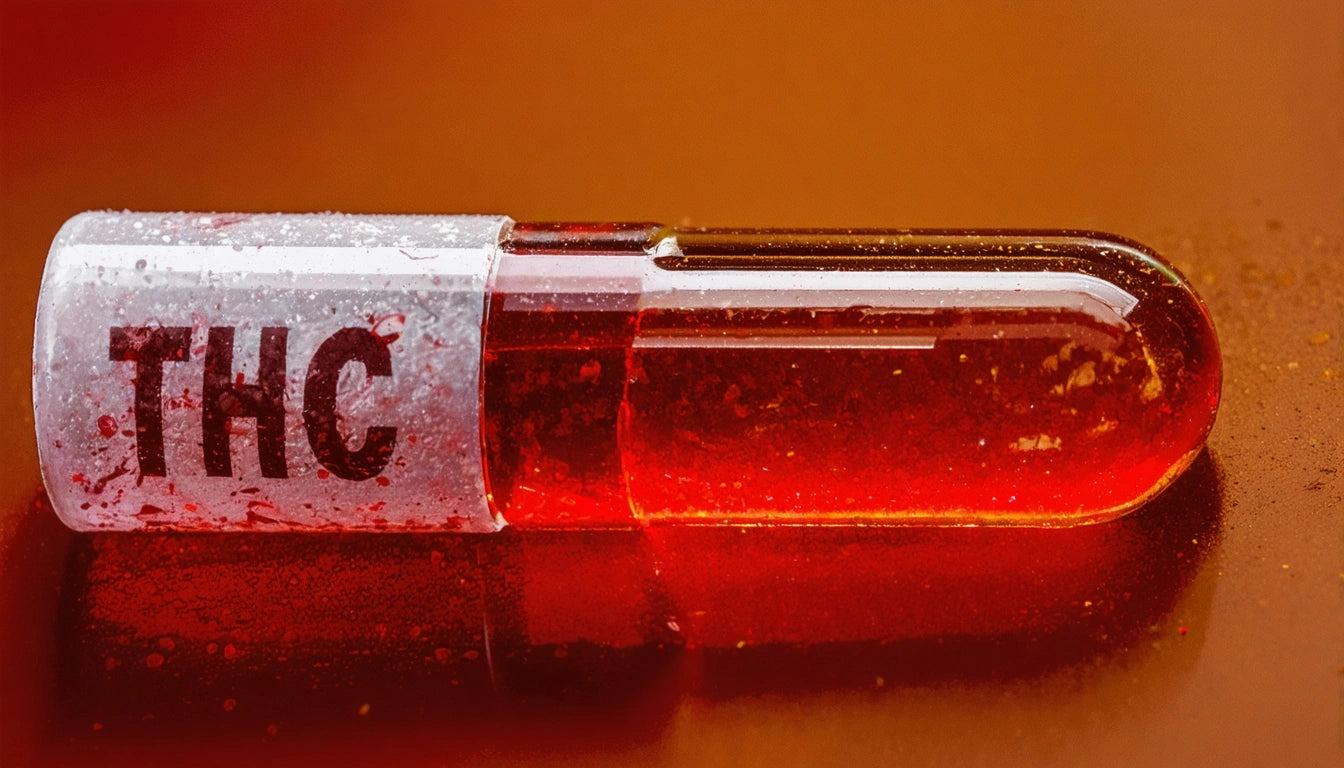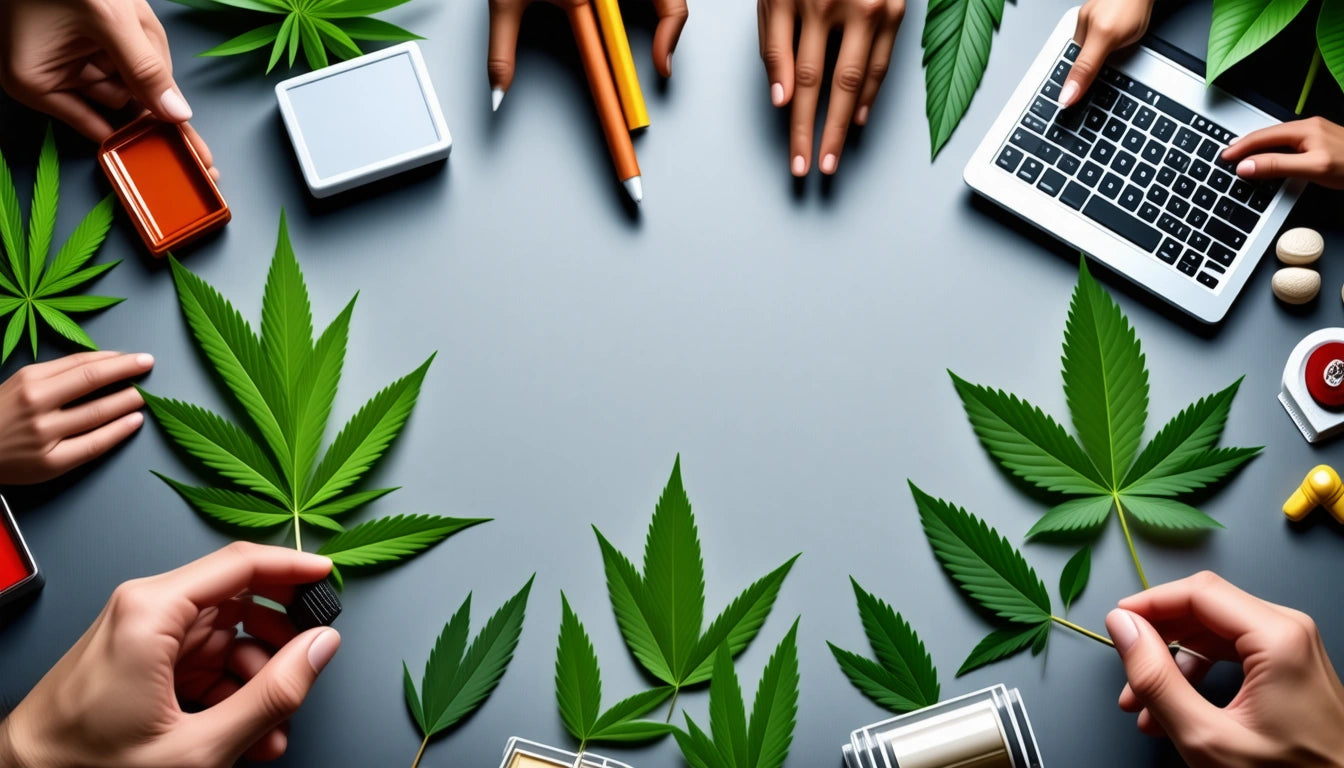Table of Contents
- THC Testing Basics: How Detection Works
- Detection Thresholds: How Much THC Triggers a Positive Result
- Workplace Testing Policies: Do Employers Still Test for THC?
- Alternative Products: Can Topicals and Other Products Cause Positive Tests?
- Industry Variations: DOT, Non-DOT, and Specialized Testing
- Regional Considerations: State-Specific Testing Regulations
- Future Testing Landscape: Evolving Standards and Practices
Understanding THC and Drug Testing: What You Need to Know
Cannabis legalization continues to expand across the United States, yet drug testing for THC remains a complex reality for many individuals. Whether you're facing a pre-employment screening, workplace random testing, or insurance examination, understanding how THC testing works is crucial for making informed decisions about cannabis use.
THC Testing Basics: How Detection Works
Drug tests don't actually look for THC (tetrahydrocannabinol) itself but rather for THC metabolites, primarily THC-COOH or carboxy-THC. When cannabis is consumed, your body processes THC into these metabolites, which can remain detectable long after the psychoactive effects have subsided.
According to research on THC metabolites, these compounds can be detected in various biological samples:
- Urine: Most common testing method, detecting use from several days to weeks
- Blood: Typically detects recent use within hours to days
- Hair: Can detect patterns of use over months
- Saliva: Generally detects very recent use within 24-72 hours
Each testing method has different detection windows and sensitivity levels, making it important to understand which test you'll be taking when considering how cannabis products are stored and used in relation to potential testing situations.
Detection Thresholds: How Much THC Triggers a Positive Result
The question of how much THC will cause you to fail a drug test depends on the test's cutoff levels. Standard cutoff concentrations for initial screening and confirmatory tests are:
- Urine tests: 50 ng/mL for screening, 15 ng/mL for confirmation
- Blood tests: 1-5 ng/mL depending on the laboratory
- Hair tests: 1 pg/mg of hair
- Saliva tests: 4 ng/mL
These thresholds mean that even minimal THC exposure could potentially trigger a positive result, especially for regular users. Blood testing information indicates that THC levels peak rapidly during consumption but fall quickly afterward, while metabolites persist much longer.
Workplace Testing Policies: Do Employers Still Test for THC?
The landscape of workplace testing is evolving, but many companies do still test for THC. However, there's a growing trend of employers reconsidering their cannabis testing policies, particularly in states with legal recreational or medical use.
Current Testing Trends
Many job seekers wonder: do companies still test for THC? The answer varies significantly by:
- Industry: Safety-sensitive positions (transportation, healthcare, construction) maintain strict testing
- Company size: Larger corporations often have standardized testing policies
- Location: Companies in states with legal cannabis may have more relaxed policies
- Position level: Executive positions may face different screening standards than entry-level roles
Some major employers like Amazon and Apple have relaxed their THC testing requirements for many positions, recognizing the changing legal landscape and the challenge of recruiting in competitive job markets.
Alternative Products: Can Topicals and Other Products Cause Positive Tests?
A common question is whether non-smokable cannabis products can trigger positive drug tests. Research on THC topicals and testing shows that:
- Topicals: THC lotions, balms, and creams typically don't cause positive drug tests when used as directed, as minimal THC enters the bloodstream
- CBD products: May contain trace amounts of THC that could accumulate with heavy use
- Delta-8 and other alternatives: These can metabolize into compounds detectable on standard THC tests
While the risk from topical application is low, it's not zero. Product quality, application amount, skin condition, and individual metabolism all influence potential test results.
Industry Variations: DOT, Non-DOT, and Specialized Testing
Testing requirements vary significantly across industries and regulatory frameworks:
DOT Testing
Does DOT test for THC? Yes, the Department of Transportation maintains strict testing requirements for safety-sensitive transportation positions. DOT-regulated employers must follow federal guidelines regardless of state cannabis laws, using a five-panel test that includes marijuana metabolites.
Non-DOT Testing
Non-DOT employers have more flexibility in their testing policies. Many use standard panels that include THC, but some are adopting modified panels that exclude cannabis metabolites, particularly in states with legal protections for users.
Life Insurance Testing
Do life insurance companies test for THC? Many do, but policies vary widely. Some companies have removed THC from their screening panels, while others maintain testing but have increased the acceptable threshold levels. Premium rates may be affected by positive results, but outright denial is becoming less common.
Regional Considerations: State-Specific Testing Regulations
State laws increasingly limit how employers can use cannabis test results:
- Can employers test for THC in Minnesota? Minnesota law prohibits discrimination against registered medical cannabis patients, with exceptions for safety-sensitive positions.
- Can employers test for THC in Washington? Washington employers can still test, but some cities like Seattle have additional protections for medical users.
States including New York, Nevada, and New Jersey have enacted various protections against employment discrimination based solely on cannabis use detected through drug testing, particularly for off-duty use.
Future Testing Landscape: Evolving Standards and Practices
The future of THC testing is likely to see significant changes as technology and policies evolve:
- Impairment testing: Focus shifting from detecting past use to current impairment
- Performance-based assessments: Evaluating job performance rather than substance use
- Refined testing methods: More accurate detection of recent use versus residual metabolites
- Tailored policies: Industry-specific approaches that balance safety with personal freedom
As cannabis normalization continues, expect more nuanced approaches to testing that acknowledge the distinction between recreational use and workplace impairment. For those concerned about potential testing, staying informed about your specific industry, employer policies, and local regulations remains the best strategy for navigating this complex landscape.
Understanding these factors can help individuals make informed decisions about cannabis use in relation to employment opportunities and other situations where drug testing may occur.











Leave a comment
All comments are moderated before being published.
This site is protected by hCaptcha and the hCaptcha Privacy Policy and Terms of Service apply.